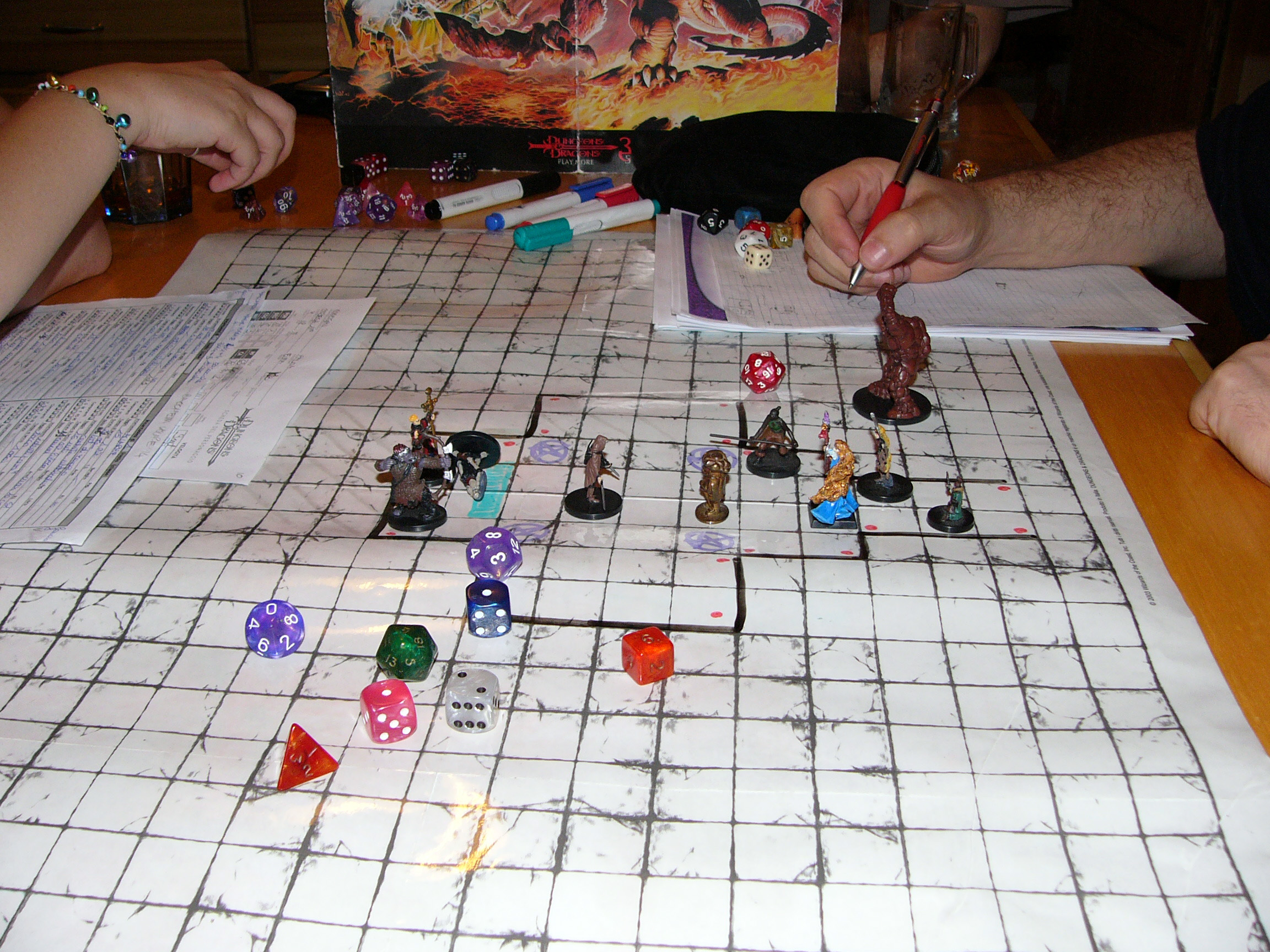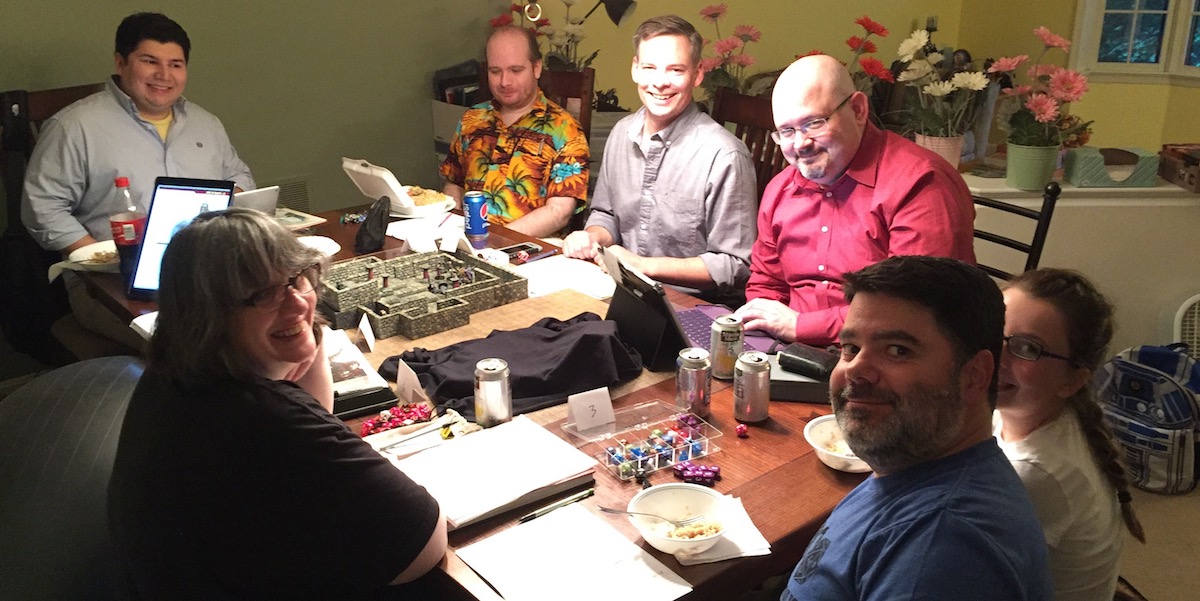Basics
What is D&D
D&D is what is know as a table-top RPG, or roleplaying game. Much like various video games that fall under the RPG tag, you take on the identity of a character inside the setting, but D&D provides something many of these games can't hope to. Freedom. Unlike a video game, which has pre-determined events, quests, solutions, and paths, D&D allows for complete freedom of action. As an example, a RPG video game may have you work with criminals. This could be a group of small time thieves or a large underground organization, but regardless, the game tells you that, to complete a mission, you HAVE to work with them. Here, there's most likely no option to try anything else as it's not coded into the game. But, should we say the same situation played out in D&D, you could, if you desired, attempt to complete the quest through other means, as long as your Dungeon Master can come up with a way you can. More on DMs here, but as a sort of preview, a part of the DM's job is to work with the players and what they want to do, even if it's not to their liking. Now, back to the scenario at hand, as a few examples, you could:
- 1. Attempt to take down the criminal group in any number of ways.
- 2. Refuse their help and go it alone.
- 3. Even completely abandon the quest all together if you really wanted to.
These are just a few of the infinite possibilities that you could choose from. So, in summary, D&D is a game that is a completely free-roam sandbox, allowing you to do anything you want, when you want. As such, it also provides a safe place among friends or like-minded people to grow skills such as leadership, critical thinking, and even can create strong friendships over the course of a campaign.

Benefits?
Yes, D&D has benefits outside of just fun. It may seem unlikely at first, but once you look a little bit deeper than the surface, it becomes relatively clear. To begin with, D&D provides the ability to test the players' ability to critically think. The DM, should he/she choose to, can provide puzzles, equations, riddles, or even scenarios that require a different approach to a problem than simply hacking and slashing through waves of enemies and defeating a "boss." This is where a lot of the fun is to be had also, as players should never be able to really expect a situation to play out one way.
Next, let's talk leadership. D&D requires a level of strategy, at least if the DM thinks the group can handle it. You can't have strategy without leadership, so often a player will be nominated as the unofficial leader of the group. Usually this person is expected to talk with quest givers, direct the rest of the group, and even make some big decisions that could effect the game in large ways. Coincidentally, this person is usually also the one with the most experience in D&D among the group. However, this does not mean the rest of the players don't learn anything about leadership along the way. From example, the leader can inspire other players to become a leader, maybe in the same campaign or a completely different one. For example, D&D can teach leadership skills such as communication, compassion, teamwork, strategy, and respect.
Finally, let's talk about friendships. Through the course of a campaign, you are stuck with
your fellow players; sometimes these will be friends, other times they may be complete strangers.
Regardless, you are stuck with them and therefore have to learn how to work with them. They may
do things you or your character won't like, but they are just playing D&D how they believe it's supposed
to be played, and you can't fault them for wanting to have fun their way. However, if
you can put aside differences, you can make some great friendships with your party members.
If you're already friends, then this can serve as a way to strengthen those friendships.
Often times a person will put into a character what they wish they were, trying to
present the best version of themselves in this fantasy world. You can get a good insight into
how you're party members feel about themselves and their shortcomings just by looking
at their character. You can get to know your friends on a deeper level through the game, and that's
pretty cool to me.
